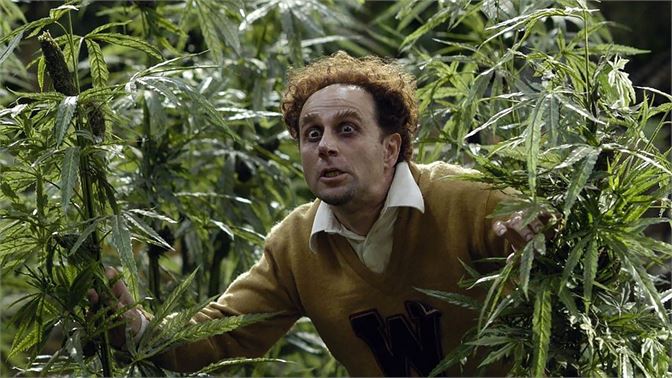The Wyoming State Legislature failed to make any progress toward commonsense cannabis reform during the 2019 session.
While the rest of the nation—including several of Wyoming’s red-state neighbors—moves toward legalizing medical cannabis, decreasing criminal penalties for possession, and otherwise abandoning “War on Drug”-era policies, Wyoming lawmakers won’t budge.
But hey: At least with former State Sen. Leland Christensen (R-Alta) gone, lawmakers didn’t waste any more time this year trying to increase criminal penalties for edibles.
That said, not getting worse doesn’t count as progress.
Three good bills done wrong
Three cannabis-related bills failed this session—one to legalize medical cannabis, another to study medical legalization, and a third that would have decreased penalties for possession. None made it past even a single committee vote.
House Bill 278, sponsored by House Majority Floor Leader Eric Barlow (R-Gillette), would have taken an action that 86 percent of Wyoming residents support: legalizing doctor-prescribed cannabis for patients who need it.
Another measure, House Bill 258, would have approved a study to be conducted on how medical cannabis could be implemented in the state. It was sponsored by Rep. Bill Henderson (R-Cheyenne).
Speaker of the House Steve Harshman (R-Casper) did not assign either of these bills to a committee for consideration, so both died on a procedural deadline without debate or a vote.
Medical malpractice
Wyoming is one of only 18 states that have not legalized medical cannabis in some form or another.

HB-258, the study bill, would have required a group of state health officials to identify medical conditions that would benefit from cannabis treatment. It would have also had the officials make recommendations and create a timeline for implementing medical cannabis in Wyoming.
HB-278, Barlow’s “Medical Cannabis Act,” would have made medical marijuana legal in Wyoming on July 1. It would have authorized—under specified, regulated circumstances—the cultivation, testing, possession, delivery, and use of cannabis for medical purposes.
The bill would have legalized medical cannabis with levels of THC (the plant’s psychoactive ingredient) of between .3 and 15 percent. A producer would have been required to be licensed by the Wyoming Department of Agriculture. A person convicted of a controlled substance felony would not have been eligible to become a licensed producer.
Under Barlow’s proposal, a person would have to have received a prescription from a medical practitioner to obtain medical cannabis, and would need a registration card issued by the state Department of Health. To get a card, a person would have to be at least 18 years old, a Wyoming resident, and suffer from a condition a doctor deems treatable by cannabis. The card would be good for one year and could be renewed.
Unfortunately, neither of these completely reasonable bills that would have benefitted sick people in Wyoming saw the light of day during the session.
Jailhouse blues
Another cannabis reform measure, House Bill 234, fared only slightly better than the other two bills. It died on a 1-8 vote in the House Judiciary Committee. The lone supporter on the panel was freshman Rep. Sarah Burlingame (D-Cheyenne).

HB-234, sponsored by Rep. Tyler Lindholm (R-Sundance), aimed to reduce penalties for possession of marijuana.
A 2018 University of Wyoming survey found that 69 percent of Wyoming residents believe there should be no jail time for possessing small amounts of marijuana.
Currently, however, people caught possessing three ounces or less of marijuana in Wyoming face some of the harshest penalties in the nation: up to a year in jail and/or a $1,000 fine.
Possessing more than 3 ounces is currently a felony that can land someone in prison for up to 5 years and/or a $10,000 fine.
HB-234 was a half-measure. Rather than eliminating jail time for simple possession, it would have cut the current maximum sentence roughly in half—people would have still faced six months in jail and a $750 fine rather than the current punishment for having three ounces or less.
The proposal would have also done away with the felony charge for recreational possession of more than three ounces, changing it to a misdemeanor and lowering the maximum penalty to a year in jail and a $1,000 fine.
Lawmakers love cop lobbyists
Rep. Bunky Loucks (R-Casper), a co-sponsor of HB-234, told the House Judiciary Committee about a young man he knows who was sentenced to five years in prison for possessing a small amount of marijuana. While the man served less than two years, Loucks said he had a very difficult time finding a job after he was released.
“Putting people in prison for victimless crimes is something we shouldn’t be doing,” Loucks said. “It’s ruining a lot of people.”
“Putting people in prison for victimless crimes is something we shouldn’t be doing.”
In response, Wyoming Highway Patrol Administrator Col. Kebin Haller told the committee that Wyoming’s current high penalty is “a necessary tool for prosecutors” that the state should not remove.
As usual, the legislative committee listened to law enforcement demands for maximum penalties instead of the commonsense pleas of those who recognize that smoking a harmless plant should never land someone behind bars.
Wyoming arrests for marijuana are the highest per capita in the nation. In 2016, the most recent year for which data were available, there were 415 pot arrests in the state for every 100,000 residents.
Wyoming’s laws make sure that those people face the toughest penalties possible.

